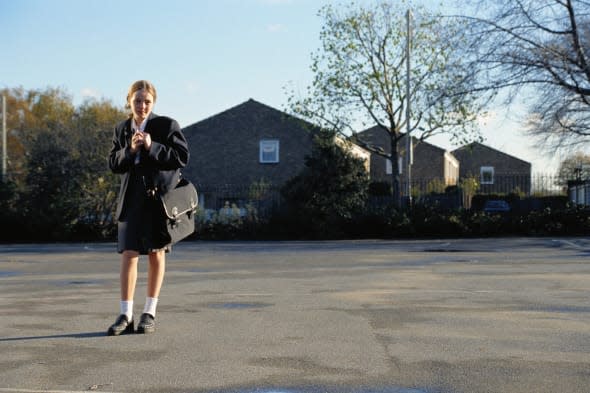How to support your kids for secondary school

Making the move from primary to secondary school can be an exciting and daunting time. Even if you already have an older son or daughter at big school, it's natural for younger children to feel nervous and have lots of questions.
Related Searches
The building looks huge – what if I can't find my classroom? My best friend isn't in the same class as me, what if I don't make new friends? From rehearsing the route to school to helping your child feel organised, there are things you can do to help ensure everything goes as smoothly as possible.
Getting to school
%VIRTUAL-AFCSponserAds%For many children, a move to secondary school means having to take a longer or more complicated journey, which they may be doing on their own for the first time. Even if your child will be travelling to school with older siblings or a group of friends, it's a good idea to practise the route together at least once.
Ask them to talk about any concerns they might have. What if they lost their money for the bus, or their train was cancelled? Talking through potential problems will help them feel more confident about doing the journey on their own.
Finding their way around school
Obtain a map of the new school and study it together. Having a rough idea of the building layout will help them find their way around in the early days. Once they receive their lesson timetable, you can mark important locations on the map. If your child is particularly anxious, ask the teacher for a lesson timetable before school starts, so you can study it together.
Children with special needs can find the change to big school even more daunting. Don't hesitate to approach the school and ask if you can visit it together. Ask if you can take photos of people and locations – having pictures of key people and places will be useful when they start lessons.
Getting organised
As the big day nears, your son or daughter may start to feel anxious. Encourage them to list everything they will need, go shopping with you for supplies, and pack their bag for themselves. Taking responsibility for their own organisation will help them to mentally prepare and feel in control.
Friendship worries
One of the biggest worries for children will be around making new friends. Remind them that everyone will be feeling the same way, and to make the effort to introduce themselves to others, even if they are feeling shy. Joining clubs and societies can be a good way to get to make new friends.
Ask around and find out who else is going to the same secondary school as your child. You might want to keep in touch in the school holidays or arrange for them to travel together on their first day, so they don't have to walk through the doors alone.
Settling-in period
It's natural for your child to feel more tired than usual during the first few weeks of school. During the early stages, it can be a good idea to cut back on extra-curricular activities and focus on getting into a good routine with homework.
Make sure you schedule in some quiet time to spend with your child. Even though they are growing up fast, your advice and support is still very much needed.




